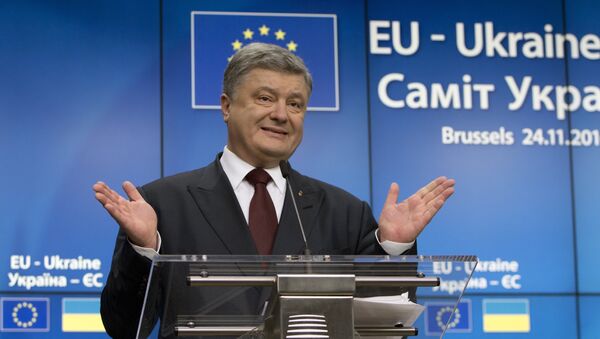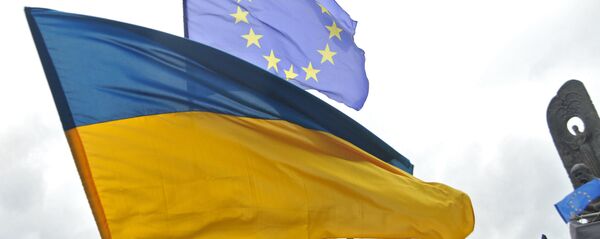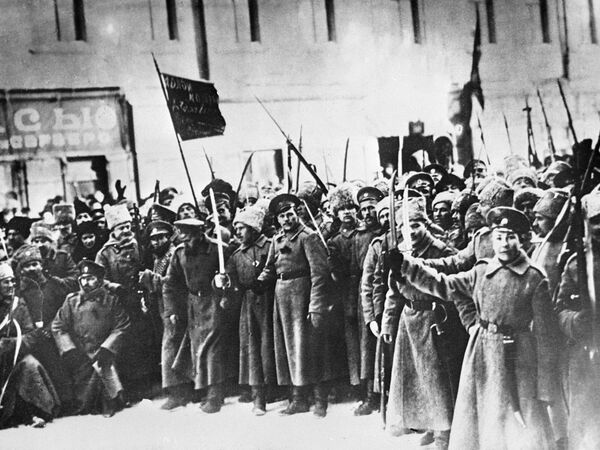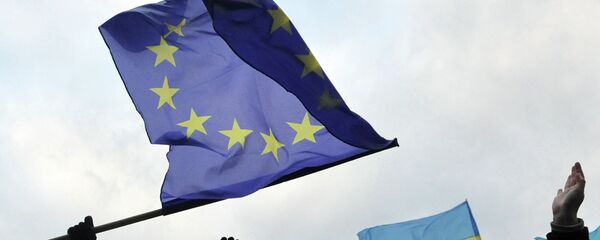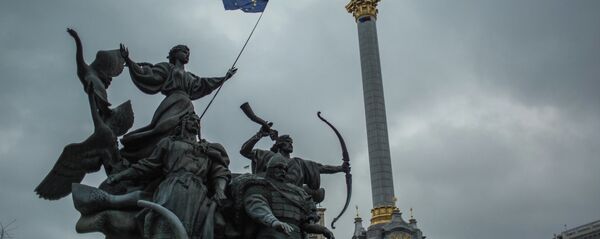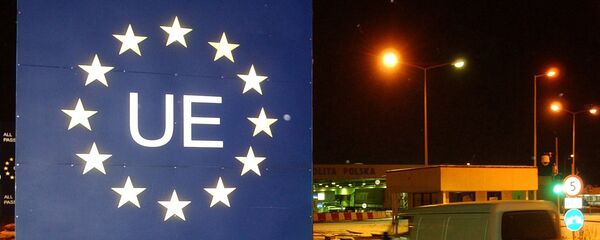On Thursday, the European Council approved a measure granting citizens of Ukraine 90-day visa-free travel within the bloc. The Council specified that both it and the EU Parliament still need to sign the measure. Kiev expects this to occur in Strasbourg next week. After that it will take another three weeks for the agreement to enter into force.
Unable to contain his excitement, Ukrainian President Petro Poroshenko told television channel 1+1 that the visa-free deal had immense, historical, epoch-making implications.
"I would say that today Ukraine has finalized its divorce from the Russian Empire; it is in this philosophical way that we must perceive this," he declared.
The president added that the visa-free regime "returns Ukraine to its historical place as a part of Europe."
Observers couldn't help but scratch their heads in amazement over the number of historical and logical errors packed into these couple of sentences. To begin with, the 'Russian Empire' has been defunct since the February Revolution of March 1917 – over a century ago. Its centenary is being marked this year.
Secondly, if Poroshenko was talking about gaining 'independence from Moscow', Ukraine has been independent from Russia for over a quarter century, since December 1991, when the Soviet Union was broken up (under the initiative of Russian leader Boris Yeltsin, incidentally).
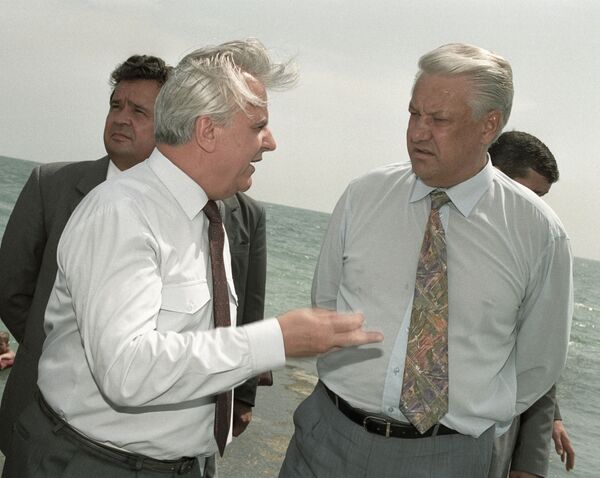
It also remains unclear what 'historical place' in Europe President Poroshenko was referring to. The only times all or part of Ukraine was formally considered being part of Europe in the geopolitical sense was when it was controlled by Germany during the First and Second World Wars, and before that, when part of its territory was controlled by the Polish-Lithuanian Commonwealth and 20th century interwar Poland.
In the same interview, Poroshenko made several more ill-considered remarks, saying for example that he thought that the visa-free regime with the EU would help entice the people of Crimea and the Donbass to 'return to Ukraine'.
"When we talk about the return of the occupied territories by political and diplomatic means, this means creating conditions for residents which would make them interested in returning to Ukraine and getting Ukrainian passports," the president said.
But Crimeans themselves say they would never trade their status as part of Russia for the opportunity to travel to the EU without visas. Speaking to RIA Novosti, Zaur Smirnov, head of the Crimean Republic's committee on ethnic relations, said that the referendum of March 2014 showed pretty conclusively that Crimeans are not interested in Ukraine's 'European prospects'.
"Ukrainian authorities forgot one thing: that Crimeans will never trade their historical homeland, to which they sought to return for such a long time. For Crimeans, the return of Crimea to Russia has not only historical significance, but has also become a powerful factor for our region's social and economic development," Smirnov stressed.
Crimea broke off from Ukraine and rejoined Russia in March 2014, following the Euromaidan coup in Kiev in February of that year. Concerned by the new Ukrainian authorities' threats against the Russian minority, Crimean officials organized a referendum on the peninsula's status. Amid voter turnout of over 80%, more than 95% of Crimea's residents voted in favor of rejoining Russia, almost 60 years after it was first handed over to the Ukrainian Soviet Socialist Republic by Nikita Khrushchev in 1954.
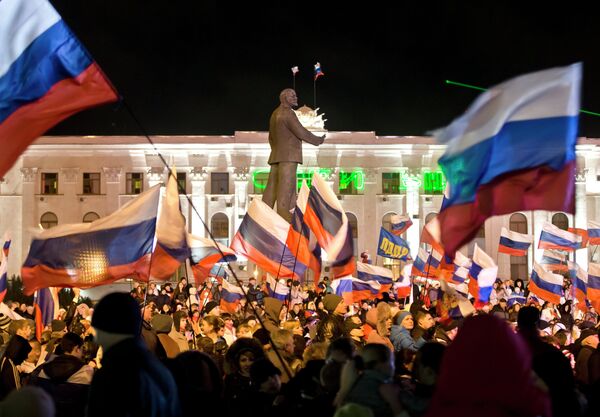
When it comes to the Donbass, it was Kiev that initiated a series of restrictive measures, including an economic blockade of the breakaway territories, thus helping to ensure that the region's residents don't want to rejoin Ukraine. Furthermore, Ukrainian authorities have also rejected calls to comply with the Minsk agreements, including constitutional reforms which would be necessary to reintegrate the breakaways. In this context, Poroshenko's words about 'enticing' the Donbass using the EU visa-free regime make little sense.
"The Ukrainian people have been brought to a point where we have become one of the ten poorest countries on earth; this is nonsense for a European country! This means that this visa-free agreement that we have endured so much to attain can be taken advantage of by a maximum of 10-15% of Ukrainians; this is shown by sociological research," Tymoshenko said, speaking to Ukraine's ZIK TV.
Indeed, national statistics suggest that more Ukrainians will probably be spending their time abroad working than leaving the country for vacations and pleasure trips. It's estimated that up to 2.1 million Ukrainians are working in Russia, with up to a million more living and working in Poland. Several hundred thousand more Ukrainians have also fled poverty and the war in eastern Ukraine to other countries, mostly in Europe.
